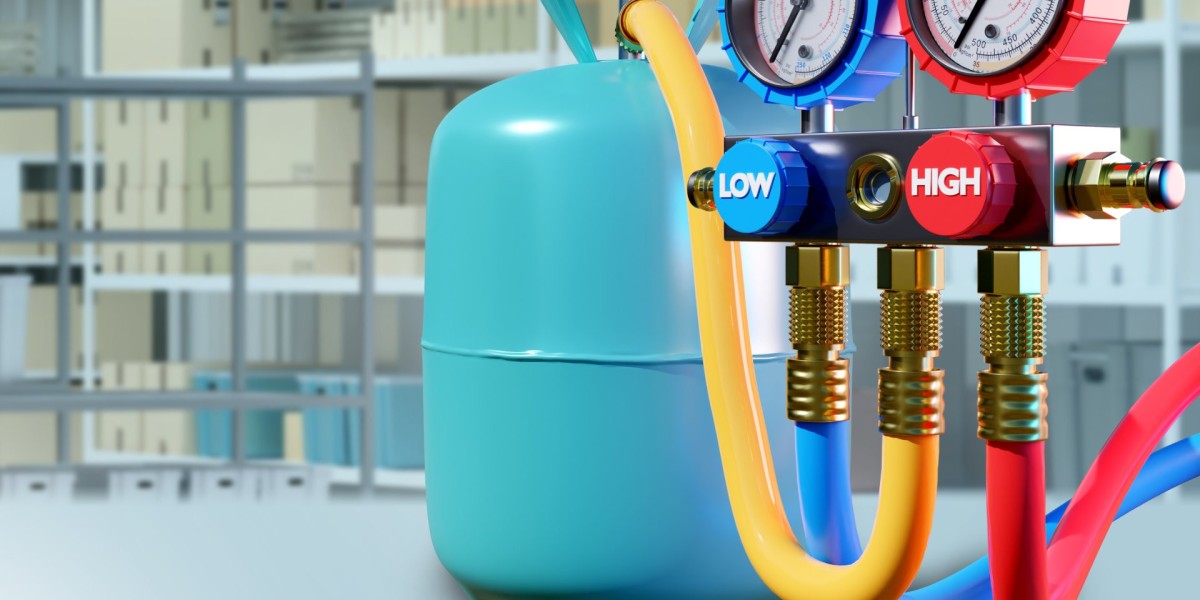If you’ve ever had an air conditioner or refrigerator serviced, chances are you’ve heard the word Freon. But what is Freon, exactly? And why is it being replaced in newer systems?
In this guide, we’ll break down what Freon is, how it works, why it’s important—and why we’re moving on from it.
What Is Freon?
Freon is a type of refrigerant, a chemical compound used in cooling systems like air conditioners, refrigerators, and freezers. It's not a single substance, but a brand name once widely used for different gases that help move heat out of a space.
The most familiar form of Freon is R-22, a type of CFC (chlorofluorocarbon). While R-22 was long known for its cooling power, it’s also now recognized for causing harm to the environment.
How Freon Works in Cooling Systems
To understand what Freon does, let’s look at the cooling process. Whether in your home’s AC or your car’s system, the cycle works like this:
Compression – Freon gas is compressed and becomes hot and pressurized.
Condensation – The gas flows through coils, cools down, and turns into a liquid while releasing heat outdoors.
Evaporation – Indoors, the liquid evaporates, pulling heat from the surrounding air to cool your space.
Repetition – This process runs over and over to maintain a steady temperature.
Freon’s ability to absorb and move heat made it a cornerstone of early HVAC and refrigeration technology.
Why Freon Was So Widely Used
For years, Freon was the most popular refrigerant in homes, cars, and commercial buildings. It was easy to use, stable, and effective—perfect for systems that needed to maintain a cool temperature in all kinds of climates.
That’s why, if someone asks what is Freon used for, the answer is: almost everything that needed cooling from the 1930s to early 2000s.
Is Freon Still in Use?
Yes—but only in older systems. New laws and international agreements have restricted the production and use of R-22 Freon due to its environmental impact.
Today’s new air conditioners and refrigerators no longer use Freon. Instead, they rely on modern refrigerants that are safer for the planet and meet stricter environmental guidelines.
Why Freon Is Harmful to the Environment
The problem with Freon is that it contains chlorine, which can rise into the upper atmosphere and damage the ozone layer. The ozone layer protects the Earth from ultraviolet (UV) rays. Without it, people and ecosystems are more exposed to harmful radiation.
Ozone layer depletion has serious consequences:
Increased risk of skin cancer
Harm to animals and plants
Contribution to global warming
That’s why governments worldwide have moved to eliminate the use of ozone-depleting substances like R-22.
Freon Alternatives: What Replaced It?
Thanks to environmental regulations, Freon has been replaced by newer, cleaner refrigerants. Some of the most common include:
R-410A (Puron): Energy-efficient and ozone-safe; used in many modern AC units.
R-134a: Often found in car air conditioners and residential fridges.
R-32: A newer option that offers high efficiency with low global warming potential.
These alternatives cool just as well—if not better—without the environmental downsides.
Still Using a Freon-Based System?
If your cooling system is more than 10–15 years old, it might still use R-22 Freon. While it’s not illegal to keep using such systems, getting Freon is now expensive and harder to find.
Here are your options:
Continue using Freon (if your system still works well)
Retrofit the unit to use a modern refrigerant (may require system changes)
Replace the system with a new, energy-efficient model
Upgrading may seem costly, but it pays off in lower energy bills and better environmental impact.
Signs Your System Might Be Low on Freon
If your air conditioner isn’t cooling properly, it may be low on refrigerant. Look for these signs:
Blowing warm or mildly cool air
Long cooling cycles or poor temperature control
Hissing sounds or bubbling noises
Ice forming on the coils
If you notice any of these, contact a certified HVAC technician. They can inspect your system and tell you whether it’s time to recharge or replace the unit.
Why Proper Maintenance Matters
If your system still uses Freon, regular maintenance is critical. A leak doesn’t just affect performance—it also harms the environment.
Routine service helps:
Catch and fix leaks early
Keep the system running efficiently
Extend your unit’s life
Lower your monthly energy costs
An annual HVAC checkup is a small investment that can save you big money down the road.
The Future of Cooling
As the industry continues to evolve, manufacturers are focused on developing green refrigerants that offer powerful cooling with a minimal environmental footprint. Future refrigerants will reduce both ozone depletion and global warming potential.
Soon, nearly every cooling appliance will use eco-safe options as part of a more sustainable world.
Final Thoughts
So, what is Freon? It’s a refrigerant that once powered most of our cooling systems. While it served us well for many years, it’s no longer the best choice for our health or the planet.
Switching to a modern, eco-friendly system is a smart move that saves money and supports a cleaner environment.
Need help with Freon, retrofitting, or upgrading your AC?
Contact GNV Heating and Air Conditioning today for expert guidance and reliable service. We’ll help you stay cool—and go green.








